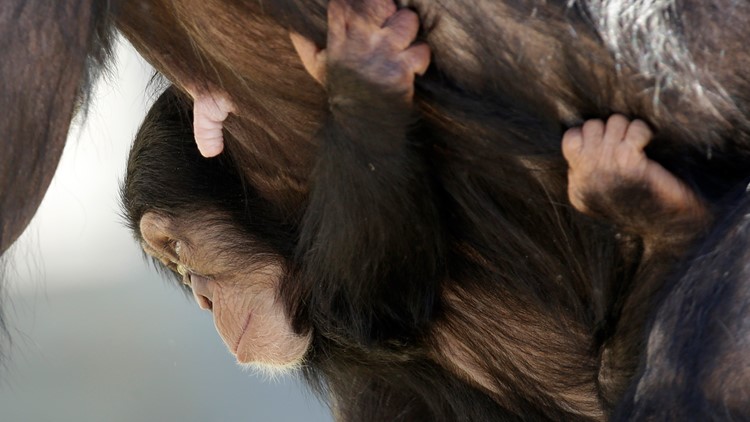NEW ORLEANS — An animal rights group has filed a federal complaint against the national sanctuary for federally-owned chimpanzees once used for experiments.
A federal citation and Chimp Haven’s own reports about an escape and about deaths caused by fights among chimpanzees show the sanctuary’s care is poor, according to Stop Animal Exploitation Now.
The sanctuary in north Louisiana said it acted immediately after a female was attacked in April by others to which it was being introduced. That animal was euthanized in May. Another female escaped twice on June 2.
A U.S. Department of Agriculture warning letter said animal-handling rules were violated in both incidents. It also noted that Chimp Haven was going over its protocols for introducing and separating animals, and that trees near the second female's main enclosure have been cut to prevent future escapes.
Chimp Haven has cared for more than 500 chimps since it opened in 2005. Of these, 190 have died, including five due to aggression by other chimpanzees, it said an emailed statement.
Chimpanzees also attack and sometimes kill each other in the wild, said Michael L. Wilson, a University of Minnesota evolution anthropologist who studies chimpanzee behavior and biology.
“Killings ... have been documented at most long-term study sites across Africa” and “can occur suddenly and unpredictably, without obvious provocation,” he wrote in an email.
He participated in a 2008 study that found that attacks by other chimpanzees were the second most common cause of death over 46 years at one wild colony, behind only illness. Of 130 deaths, 17 — or 20% of the 86 for which scientists knew the cause — were due to attacks by other chimpanzees.
At Chimp Haven, the figure is less than 3%.
The USDA's Animal and Plant Health Inspection Service gave Chimp Haven the warning letter in June 2021 because of the death of a female attacked by other chimps and two escapes in one day by another female. The inspector noted that the sanctuary had acted to correct problems.
In December 2021, the sanctuary reported to federal officials that one male had bled to death and another had died after attacks by others. The same month, it reported that seven animals had escaped through an unsecured skylight.
“Animal sanctuaries should keep animals safe and uninjured, not allow traumatic injuries requiring euthanasia, or escapes of potentially dangerous animals,” said Michael A. Budkie, co-founder of the Ohio-based animal rights group.
An emailed response for the sanctuary said, “The care and well-being of chimpanzees is our top priority at Chimp Haven.” It said there has never been such large-scale work to move chimpanzees “from research settings to a life that closely resembles life in the wild.”
This has involved introducing hundreds of animals to each other, because “chimpanzees need dynamic social groups to thrive socially, physically, emotionally and psychologically.”
Very occasionally such introductions haven't worked out, the statement said.
Wilson, the University of Minnesota scientist, wrote in his email, “Managing chimpanzees in captivity poses tremendous challenges, because chimpanzees are strong, clever, impulsive, and capable of violent attacks."
Captive chimps "are likely best off in many ways if housed in social groups with multiple males and females, but such groups also pose many challenges for management, including the risks of aggression,” he wrote.



